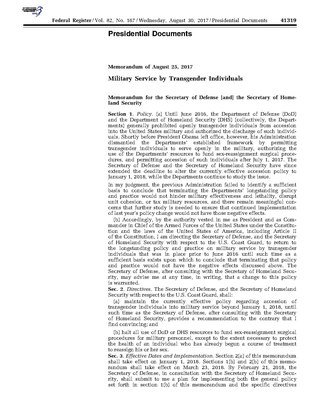
De Leon v. Perry was a federal lawsuit challenging Texas marriage law, specifically the state's constitutional ban on same-sex marriage and corresponding statutes. A U.S. district court ruled in favor of the plaintiff same-sex couples on February 26, 2014, granting their motion for a preliminary injunction. The state defendants filed an interlocutory appeal before the United States Court of Appeals for the Fifth Circuit, as the disposition on the motion was not a final ruling in the case. On April 14, 2014, the plaintiffs filed a motion for an expedited hearing, which was denied on May 21, 2014. The plaintiffs filed another motion for an expedited hearing on October 6, 2014, after the Supreme Court of the United States denied appeals in other marriage equality cases, and the motion was granted on October 7, 2014, setting a hearing for November 2014. However, on October 27, 2014, the Fifth Circuit set oral arguments for January 9, 2015.

Wolf v. Walker is a federal lawsuit filed in February 2014 that challenged Wisconsin's refusal to grant marriage licenses to same-sex couples, its refusal to recognize same-sex marriages established in other jurisdictions, and related statutes. In June 2014, Judge Barbara Crabb of the U.S. District Court for the Western District of Wisconsin ruled for the plaintiffs. In the week before she stayed her decision, county clerks in 60 of the state's 72 counties issued marriage licenses to same-sex couples and some performed marriage ceremonies for them. The state appealed her decision to the Seventh Circuit Court of Appeals, which affirmed her opinion in a unanimous decision on September 4. The state requested a writ of certiorari from the U.S. Supreme Court, which was denied on October 6. Same-sex marriages resumed after the Seventh Circuit issued its mandate the next day.

Burns v. Hickenlooper is a lawsuit filed on July 1, 2014, in federal district court in Colorado, challenging that state's denial of marriage rights to same-sex couples. The plaintiffs' complaint alleged that the defendants have violated the Fourteenth Amendment by denying plaintiffs the fundamental right of marriage. The defendants agreed with the substance of the plaintiffs' case, but asked the district court to stay implementation of any order requiring Colorado to alter enforcement of its ban pending the outcome of other litigation. After the district court declined to grant more than a one-month stay on July 23, the state's governor and attorney general appealed and won a stay from the Tenth Circuit Court of Appeals on August 21. Following U.S. Supreme Court action in other cases, on October 8 they asked the Tenth Circuit to dismiss their appeal and lift the stay, which would effectively legalize same-sex marriage in Colorado.
In Brenner v. Scott and its companion case, Grimsley v. Scott, a U.S. district court found Florida's constitutional and statutory bans on same-sex marriage unconstitutional. On August 21, 2014, the court issued a preliminary injunction that prevented that state from enforcing its bans and then stayed its injunction until stays were lifted in the three same-sex marriage cases then petitioning for a writ of certiorari in the U.S. Supreme Court–Bostic, Bishop, and Kitchen–and for 91 days thereafter. When the district court's preliminary injunction took effect on January 6, 2015, enforcement of Florida's bans on same-sex marriage ended.
Obergefell v. Hodges, 576 U.S. 644 (2015), is a landmark decision of the Supreme Court of the United States which ruled that the fundamental right to marry is guaranteed to same-sex couples by both the Due Process Clause and the Equal Protection Clause of the Fourteenth Amendment of the Constitution. The 5–4 ruling requires all 50 states, the District of Columbia, and the Insular Areas to perform and recognize the marriages of same-sex couples on the same terms and conditions as the marriages of opposite-sex couples, with equal rights and responsibilities. Prior to Obergefell, same-sex marriage had already been established by statute, court ruling, or voter initiative in 36 states, the District of Columbia, and Guam.
Citizens for Responsibility and Ethics in Washington v. Trump was a case brought before the United States District Court for the Southern District of New York. The plaintiffs, watchdog group Citizens for Responsibility and Ethics in Washington (CREW), hotel and restaurant owner Eric Goode, an association of restaurants known as ROC United, and an Embassy Row hotel event booker named Jill Phaneuf alleged that the defendant, President Donald Trump, was in violation of the Foreign Emoluments Clause, a constitutional provision that bars the president or any other federal official from taking gifts or payments from foreign governments. CREW filed its complaint on January 23, 2017, shortly after Trump was inaugurated as president. An amended complaint, adding the hotel and restaurant industry plaintiffs, was filed on April 18, 2017. A second amended complaint was filed on May 10, 2017. CREW was represented by several prominent lawyers and legal scholars in the case.

Executive Order 13769 was signed by U.S. President Donald Trump on January 27, 2017, and quickly became the subject of legal challenges in the federal courts of the United States. The order sought to restrict travel from seven Muslim majority countries: Iran, Iraq, Libya, Somalia, Sudan, Syria, and Yemen. The plaintiffs challenging the order argued that it contravened the United States Constitution, federal statutes, or both. On March 16, 2017, Executive Order 13769 was superseded by Executive Order 13780, which took legal objections into account and removed Iraq from affected countries. Then on September 24, 2017, Executive Order 13780 was superseded by Presidential Proclamation 9645 which is aimed at more permanently establishing travel restrictions on those countries except Sudan, while adding North Korea and Venezuela which had not previously been included.

State of Washington and State of Minnesota v. Trump, 847 F.3d 1151, was a lawsuit that challenged the constitutionality of Executive Order 13769, issued by U.S. president Donald Trump.

Blumenthal v. Trump, 949 F.3d 14, was a U.S. constitutional law and federal civil procedure lawsuit heard by Circuit Judges Henderson, Tatel, and Griffith, of the United States Court of Appeals for the District of Columbia Circuit. The case was on appeal from the United States District Court for the District of Columbia, where District Judge Emmet G. Sullivan granted in part and denied in part the President's motion to dismiss for lack of standing, denied the President's motion to dismiss for failure to state claim, and certified interlocutory appeal.
Trump v. Hawaii, No. 17-965, 585 U.S. ___ (2018), was a landmark United States Supreme Court case involving Presidential Proclamation 9645 signed by President Donald Trump, which restricted travel into the United States by people from several nations, or by refugees without valid travel documents. Hawaii and several other states and groups challenged the Proclamation and two predecessor executive orders also issued by Trump on statutory and constitutional grounds. Citing a variety of statements by Trump and administration officials, they argued that the proclamation and its predecessor orders were motivated by anti-Muslim animus.

Transgender people have served or sought to serve in the United States military. The subject began to engender some political controversy starting with transgender service members being banned in 1960 and possibly earlier. This controversy came to a head in the 2010s and was subjected to relatively rapid changes for the next few years. As of 2021, transgender individuals are expressly permitted to serve openly as their identified gender. A brief timeline is as follows:

Stone v. Trump (1:17-cv-02459-MJG) was a lawsuit filed on August 28, 2017, in the United States District Court for the District of Maryland. The lawsuit alleged that President Donald Trump's ban on transgender personnel joining the U.S. military violated their equal protection and due process rights. The American Civil Liberties Union (ACLU) of Maryland filed the suit on behalf of Petty Officer First Class Brock Stone, an 11-year veteran of the U.S. Navy, and several other transgender service members. In addition to President Trump, the suit named as defendants the Secretaries of Defense, the Army, the Navy, and the Air Force.

The Presidential Memorandum on Military Service by Transgender Individuals, officially the Presidential Memorandum for the Secretary of Defense and the Secretary of Homeland Security, is the 27th presidential memorandum signed by U.S. President Donald Trump on August 25, 2017. The intent was to prevent transgender people from serving in the U.S. military, on the basis that they would be a financial burden due to sex reassignment procedures and associated costs. Federal courts delayed the implementation of this rule by issuing four injunctions. On January 22, 2019, however, the U.S. Supreme Court allowed the Trump administration's ban to take effect.

Jane Doe v. Trump (1:17-cv-01597-CKK) was a lawsuit filed on August 9, 2017, and decided January 4, 2019 in the United States District Court for the District of Columbia. The suit sought to block Donald Trump and top Pentagon officials from implementing the proposed ban on military service for transgender people under the auspices of the equal protection and due process clauses of the Fifth Amendment. The court ruled that the Trump administration's policy should not be blocked. Nonetheless, the Trump administration's policy continued to be blocked due to three preliminary injunctions against it that were not part of this lawsuit and which remained in effect as of the lawsuit's conclusion on January 4, 2019.

Stockman v. Trump (5:17-cv-01799-JGB-KKx) is an old lawsuit filed on September 5, 2017, in the United States District Court for the Central District of California. The suit, like the similar prior suits Jane Doe v. Trump, Stone v. Trump, and Karnoski v. Trump, sought to block Trump and top Pentagon officials from implementing the proposed ban on military service for transgender people under the auspices of the equal protection and due process clauses of the Fifth Amendment. The suit was filed on the behalf of four named and three anonymous transgender plaintiffs by Equality California (EQCA). Two other major LGBT-rights organizations which had filed Jane Doe v. Trump, GLBTQ Legal Advocates & Defenders (GLAD) and the National Center for Lesbian Rights, joined the suit as co-counsels in October 2017.

Leandra English v. Donald Trump, et al., No. 1:17-cv-02534, was a lawsuit before the United States District Court for the District of Columbia. The plaintiff, Leandra English, alleged that the defendants, Donald Trump and Mick Mulvaney, violated 12 U.S.C. § 5491(b)(5)(B), a component of the Dodd–Frank Act of 2010, when President Trump appointed Mulvaney to be Acting Director of the Consumer Financial Protection Bureau (CFPB).
The Presidential Memorandum for the Secretary of Defense and the Secretary of Homeland Security Regarding Military Service by Transgender Individuals is the 43rd presidential memorandum signed by U.S. President Donald Trump on March 23, 2018.
Wolf v. Vidal, 591 U.S. ___ (2020), was a case that was filed to challenge the Trump Administration's rescission of Deferred Action for Childhood Arrivals (DACA). Plaintiffs in the case are DACA recipients who argue that the rescission decision is unlawful under the Administrative Procedure Act and the Fifth Amendment. On February 13, 2018, Judge Garaufis in the Eastern District of New York addressed the question of whether the government offered a legally adequate reason for ending the DACA program. The court found that Defendants did not provide a legally adequate reason for ending the DACA program and that the decision to end DACA was arbitrary and capricious. Defendants have appealed the decision to the Second Circuit Court of Appeals.
In United States law, a nationwide injunction is injunctive relief in which a court binds the federal government even in its relations with nonparties. In their prototypical form, nationwide injunctions are used to restrict the federal government from enforcing a statute or regulation.
In direct response to election changes related to the COVID-19 pandemic and 2020 United States presidential election in Georgia; the Donald Trump 2020 presidential campaign launched numerous civil lawsuits contesting the election processes of Georgia. All of these were either dismissed or dropped.











